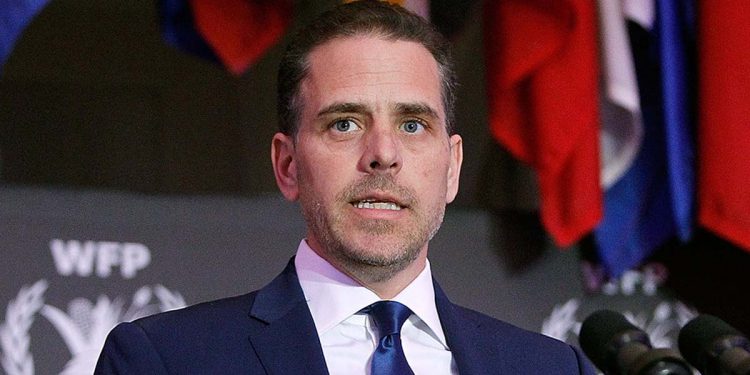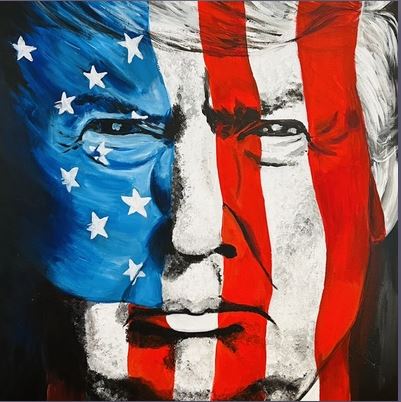The discovery of classified documents in the garage and other areas of President Biden’s home put government secrets within reach of the president’s son Hunter Biden, an acknowledged drug addict known for eyebrow-raising foreign business ventures who is also under federal investigation for suspected tax crimes.
Hunter Biden listed his father’s home in Wilmington, Delaware, as his primary address in 2018 and 2019. He said that timeframe was his worst period of alcoholism and drug addiction. During the same time, he was receiving millions of dollars from Patrick Ho, a Chinese businessman with extensive ties to Chinese military intelligence.
Mr. Ho was convicted in December 2018 on seven counts of bribery and money laundering charges.
The Obama-era classified materials are believed to have been in the Wilmington residence since at least 2017 when Mr. Biden’s term as vice president ended.
With the president’s attorneys admitting this month that classified documents were found at his house, including in the garage, evidence that his troubled son had access to the locations where the government secrets were found is piling up.
The documents are a legal problem for the president.
Federal law strictly forbids the removal or retention of classified documents or materials outside secured locations without authorization, which Mr. Biden would not have had during his tenure as vice president in the Obama White House.
Critics say the longtime storage of classified documents in unsecured locations is an even bigger national security problem.
Hunter Biden’s potentially unfiltered access to his father’s house is a concern, said Rep. James Comer, Kentucky Republican and chairman of the House Oversight and Accountability Committee. In a letter to White House Counsel Stuart Delery, Mr. Comer demanded to know whether Hunter Biden was conducting business deals near the classified documents.
“Documents on file with the committee reveal the same address appeared on Hunter Biden’s driver’s license as recently as 2018. The committee is concerned President Biden stored classified documents at the same location his son resided while engaged in international business deals with adversaries of the United States,” Mr. Comer wrote.
Chris Clark, a lawyer representing Hunter Biden, did not respond to a request for comment by The Washington Times.
Mr. Comer is pursuing a separate but related investigation of whether Hunter Biden and President Biden’s brother James Biden sought to profit from the family name. The investigation is centered on the contents of a laptop computer Hunter Biden discarded at a Delaware repair shop in April 2019.
The laptop’s hard drive contains a massive trove of information about Hunter Biden’s business dealings, including how he worked to put business connections in the same orbit as his famous father. President Biden has repeatedly insisted that he never discussed his son’s business dealings with them.
That claim was put to the test last week when the president’s name was found in a 2017 email to Hunter Biden discussing a multimillion-dollar natural gas deal with links to China. The email was recovered from Hunter Biden’s laptop.
In an email dated Oct. 27, 2017, Louisiana lawyer Robert W. Fenet wrote to James Biden and Hunter Biden to say he arranged a call with Cheniere, a Houston energy company, to discuss the purchase of 5 million tons of gas.
“I confirm I have requested [the contact] to be available for a call from Joe Biden and Hunter Biden on Monday morning,” Mr. Fenet wrote.
Although Mr. Fenet might have mistyped Joe instead of Jim, other emails and whistleblower testimony suggest President Biden was aware of his son’s business dealings.
The White House did not respond to a request for comment.
The Oct. 27 email doesn’t directly mention Chinese energy company CEFC as part of the deal, but a later email from Mr. Fenet notes that the deal would give Hunter Biden’s group the capacity to “supply 13 million metric tons per annum of [liquified natural gas] to the port in China.”
A month later, Hunter Biden wrote to CEFC Chairman Ye Jianming saying the deal would provide “large quantities” of liquified natural gas at competitive prices while “advancing the long-term goals of the CEFC through a partnership or acquisition of a promising [liquified natural gas] terminal.”
The following month, Hunter Biden wrote to Mr. Ye saying the deal would provide “large quantities of LNG at very competitive rates while also advancing the long-term goals of CEFC through a partnership or acquisition of a promising LNG terminal project in Louisiana.”
This is an excerpt from WashingtonTimes. Read the full story here.
 Telegram is where we really talk. Don't miss out!
Telegram is where we really talk. Don't miss out!







